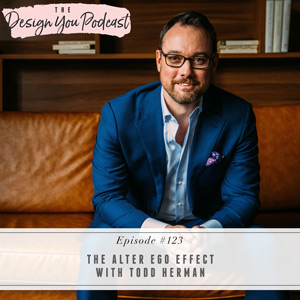
Have you ever felt like you aren’t great at something in your business, but you can’t improve it because it’s just not who you are? Nowadays, there’s so much emphasis on being your ‘authentic self’ that it leaves many of us feeling restricted by our own boundaries. But what if I told you that you can be the person who’s good at that something, simply by creating another ego for yourself? An alter ego, who can be all of those things that you feel you’re not. It’s a fascinating concept, and today’s guest joins us to tell us more!
High-performance coach and global leader, Todd Herman, has worked with the highest achievers in business and sports for over two decades. Todd believes that there’s no such thing as an authentic self, and why, instead, using the ‘alter ego effect’ can enable us to show up authentically to the various roles we play and perform better in all aspects of our lives. He joins us this week to show us how to use this model to become more of who we truly are.
Tune in this week for a super interesting discussion about the alter ego concept and find out how well-known leaders like Martin Luther King Jr have used it in their own lives. We’ll discuss why using creative imagination can break the boundaries we set for ourselves, and how embodying the superhero mindset can work wonders. Are you ready to design a life where you show up differently?
If you want to keep this conversation going, you have to join my free Design You Podcast community on Facebook. We have great conversations over there about the podcast episodes and our podcast guests are in there too! So head on over and I’ll see you there!





